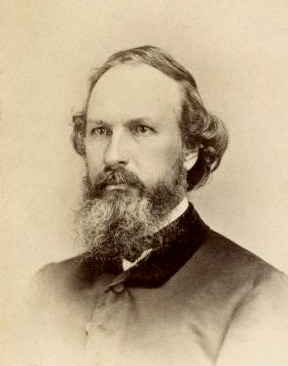Edmund Andrews (surgeon)
Edmund Andrews (1824–1904) was a prominent American surgeon and a pioneer in the field of anesthesia. He is best known for his innovative work in developing techniques for surgical anesthesia, significantly contributing to the advancement of surgery in the 19th century. Andrews' contributions to medicine extend beyond anesthesia, as he was also involved in the early use of antiseptics in surgical procedures, aligning with the principles of Joseph Lister's antiseptic method.
Early Life and Education[edit | edit source]
Edmund Andrews was born in 1824. He pursued his medical education with great enthusiasm, showing an early interest in the challenges of surgical procedures and the pain associated with them. After completing his medical degree, Andrews dedicated himself to finding safer and more effective methods of administering anesthesia.
Career and Contributions[edit | edit source]
Throughout his career, Andrews made significant contributions to the field of surgery and anesthesia. He was a strong advocate for the use of ether as an anesthetic, which was a relatively new concept at the time. His research and clinical trials helped to establish ether as a safe and reliable anesthetic agent.
In addition to his work with anesthesia, Andrews was also a pioneer in the use of antiseptic techniques in surgery. He recognized the importance of Joseph Lister's work and was among the first surgeons in America to adopt and promote the use of carbolic acid to sterilize surgical instruments and clean wounds, which significantly reduced post-surgical infections and mortality rates.
Andrews was also an esteemed educator, sharing his knowledge and expertise with many young surgeons. He held a professorship at a leading medical college, where he taught anatomy and surgery. His teachings not only covered the technical aspects of surgery but also emphasized the importance of ethical considerations in medical practice.
Legacy[edit | edit source]
Edmund Andrews' legacy in the medical field is marked by his pioneering work in anesthesia and antiseptic surgery. His efforts have had a lasting impact on the practice of surgery, making it safer and more bearable for patients. Andrews is remembered as a key figure in the history of medicine, whose innovations paved the way for modern surgical practices.
Selected Publications[edit | edit source]
Throughout his career, Andrews published numerous articles and papers on surgery, anesthesia, and antiseptic techniques. His writings contributed to the spread of knowledge and adoption of new medical practices across the United States and beyond.
Death and Honors[edit | edit source]
Edmund Andrews passed away in 1904, leaving behind a legacy of innovation and improvement in medical practice. His contributions were widely recognized by the medical community, and he received several honors and awards for his work.
Search WikiMD
Ad.Tired of being Overweight? Try W8MD's NYC physician weight loss.
Semaglutide (Ozempic / Wegovy and Tirzepatide (Mounjaro / Zepbound) available. Call 718 946 5500.
Advertise on WikiMD
|
WikiMD's Wellness Encyclopedia |
| Let Food Be Thy Medicine Medicine Thy Food - Hippocrates |
Translate this page: - East Asian
中文,
日本,
한국어,
South Asian
हिन्दी,
தமிழ்,
తెలుగు,
Urdu,
ಕನ್ನಡ,
Southeast Asian
Indonesian,
Vietnamese,
Thai,
မြန်မာဘာသာ,
বাংলা
European
español,
Deutsch,
français,
Greek,
português do Brasil,
polski,
română,
русский,
Nederlands,
norsk,
svenska,
suomi,
Italian
Middle Eastern & African
عربى,
Turkish,
Persian,
Hebrew,
Afrikaans,
isiZulu,
Kiswahili,
Other
Bulgarian,
Hungarian,
Czech,
Swedish,
മലയാളം,
मराठी,
ਪੰਜਾਬੀ,
ગુજરાતી,
Portuguese,
Ukrainian
Medical Disclaimer: WikiMD is not a substitute for professional medical advice. The information on WikiMD is provided as an information resource only, may be incorrect, outdated or misleading, and is not to be used or relied on for any diagnostic or treatment purposes. Please consult your health care provider before making any healthcare decisions or for guidance about a specific medical condition. WikiMD expressly disclaims responsibility, and shall have no liability, for any damages, loss, injury, or liability whatsoever suffered as a result of your reliance on the information contained in this site. By visiting this site you agree to the foregoing terms and conditions, which may from time to time be changed or supplemented by WikiMD. If you do not agree to the foregoing terms and conditions, you should not enter or use this site. See full disclaimer.
Credits:Most images are courtesy of Wikimedia commons, and templates, categories Wikipedia, licensed under CC BY SA or similar.
Contributors: Prab R. Tumpati, MD

